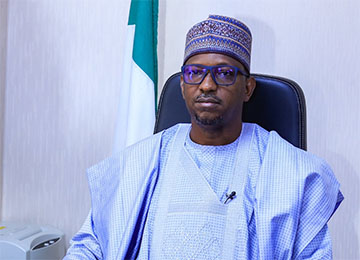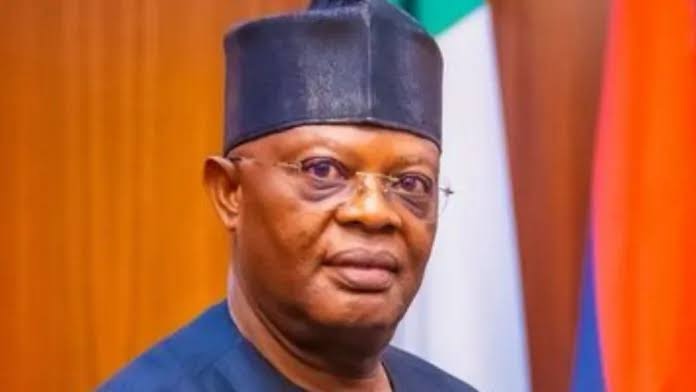Shehu Dikko, the newly appointed Chairman of the National Sports Commission (NSC), has declared his commitment to building a sustainable sports economy in Nigeria, a journey he says has now officially begun.
This statement came as former Sports Minister John Enoh formally handed over the reins of the country’s sports administration to Dikko in a ceremony held in Abuja.
Dikko, reflecting on his history with the NSC, noted how significant it felt to return to a project he helped initiate over a decade ago. “History has a way of coming full circle because in 2008 I was a consultant to the House of Representatives and was responsible for the drafting of the National Sports Commission Bill, a job I did pro-bono and about 16 years down the line I have here with the assignment to implement the work I assisted to put together,” he said.
He emphasized that the goal of the Tinubu administration is to fully unlock the potential of Nigeria’s sports sector.
“The objective of Mr. President is to harness the full potential of the Sports Economy in Nigeria,” he remarked.
Dikko outlined a shift in focus from mere participation and medals to a robust sports development framework.
“And we have to first change our mindset from the fixation of just competitions and winning medals and come back and fix our domestic sports development, when we set the foundation right the results and the winning of medals will naturally come sustainably and that should be the new mindset,” he said.
He continued, “We cannot continue to run in cycles so we need to have a different approach from day one because in my view and indeed the firm view of President Bola Ahmed Tinubu, competition is what we call ‘Consumption’ because we just take scarce resources and burn out abroad without any impact on the domestic sports development ecosystem and the Nigerian Economy”.
Dikko believes Nigeria must adopt a “Production” model, focusing on sustainable sports development.
“But we have to go back to ‘Production’ which is deliberate sports development, where we set the structure right, set the framework and put together good parameters to have a sustainable sports development which will naturally give us a solid sports economy and indeed guaranteed competitive participation at all competitions and medals,” he explained.
Dikko presented a three-pillar strategy for Nigeria’s sports sector, beginning with a focus on infrastructure.
“The other pillar is investing in purposeful world-class infrastructures that will provide an enabling environment for Growth. These infrastructures must be deliberate with maintenance culture and span from world-class infrastructure for professional sports to community infrastructure to drive grassroots sports and mass participation across the country,” he said.
According to him, President Tinubu’s vision is that sports should contribute to the national GDP and generate employment.
“The thinking of Mr. President is that after having some of all these in place we should be able to measure the Country’s Sports by its contribution to the nation’s GDP by at least three percent (3%) addition via sports and the number of jobs sports and its value chain are providing in the country in the next four to five years and indeed our competitiveness across all competitions and tournaments,” he said.
Dikko’s administration will focus on treating sports as a “National Asset” entitled to “special privileges, regulations, and concessions to drive growth and development”.
“We have to also work on legislations and regulations to set the framework to enable the Industry to grow effectively like what happened in the communications industry some years back,” he stressed.
He commended President Tinubu’s decision to reestablish the NSC, saying, “It’s a visionary decision for Mr. President to approve the return of the National Sports Commission to drive this process and objectives in line with the best international practices and standards devoid of any bureaucratic bottlenecks but absolute professionalism”.
Dikko laid out several immediate action points, starting with a restructuring of the NSC to align it with its new mandate. The goal is to create a foundation that attracts private investment in sports and infrastructure. He stressed the importance of capacity-building within sports federations, saying his team would work to improve their structure and performance.
The NSC also plans to collaborate with experts and partners to develop a framework that supports sports growth. Dikko noted the importance of creating policies, strategies, and laws that protect and promote sports development. He also assured that the NSC would take over assets and responsibilities from the now-defunct Federal Ministry of Sports while working on amendments to update the NSC Act.
Concluding his remarks, Dikko returned to his central goal saying: “The objective of Mr. President is to harness the full potential of the Sports Economy in Nigeria.”
He emphasised that this renewed focus on sports as an economic driver is designed to secure a future of sustainable growth and opportunity for Nigeria’s sports sector.


